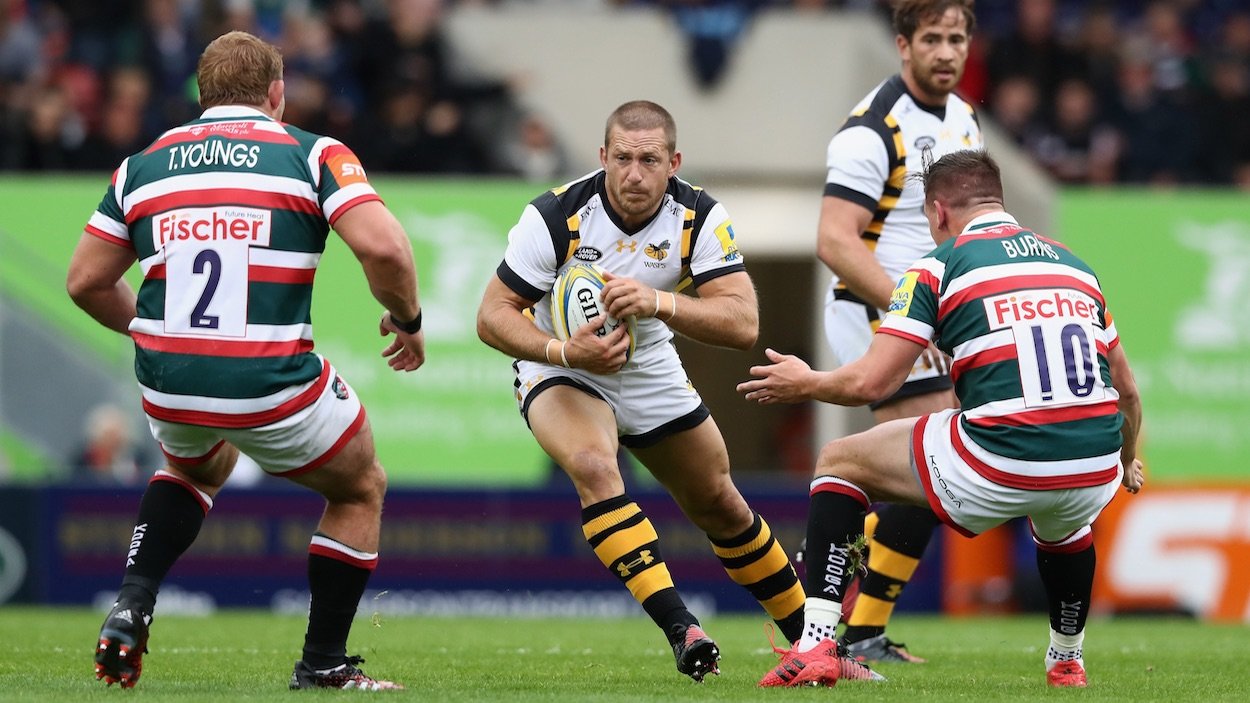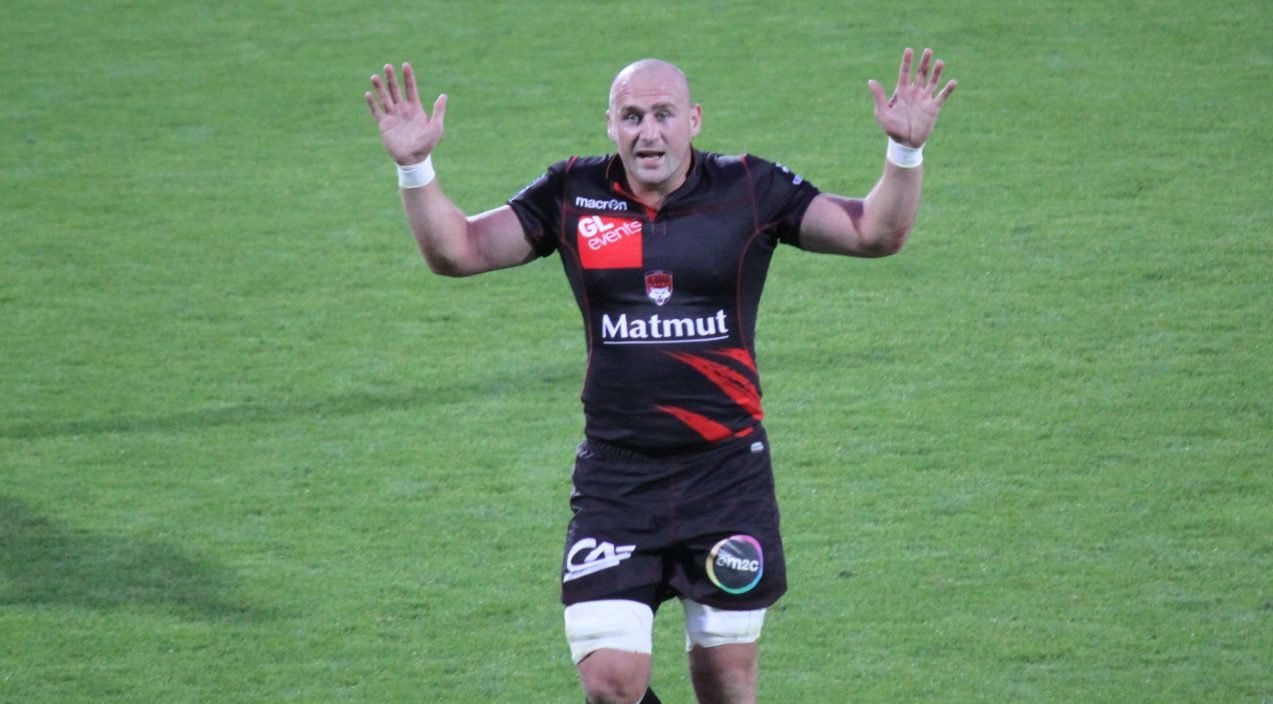The last month has seen plenty of new faces on the international scene, with the autumn internationals proving the perfect testing ground for new caps and the next Rugby World Cup still two years away.
The likes of Bundee Aki, Sam Simmonds and Darryl Marfo all debuted over the last month, representing players ranging from highly-touted young prospects to long-term journeymen, as well as residency qualifications who have committed themselves to a new nation.
But, what about those players not picked?
We have compiled what we believe to be the best XV of uncapped players around the world, but do you agree?
- Jason Woodward, Gloucester
This versatile back three player qualifies for New Zealand, Australia and England, but if a cap is to come, it is likely from the latter, as Woodward now plies his trade in the Premiership. His reliability under the high ball, kicking game and ability as a counter-attacker earn him a spot here, but will it be enough to interest Eddie Jones?
The Australian has a well-stocked cupboard in the back three, but don’t rule Woodward out from earning a cap or two over the coming years.
- James Lowe, Leinster
This Kiwi was one of the form wings in New Zealand before he made the move to Dublin earlier this month. Having broken through into Super Rugby during the days of Julian Savea’s dominance and the versatile pairing of Ben Smith and Israel Dagg, opportunities were limited for Lowe in terms of the silver fern.
The more recent emergences of Rieko Ioane and Damian McKenzie have added to the congestion in the All Blacks’ back three and Lowe will now have his heart set on a green jersey when he qualifies in 2020.
https://www.facebook.com/rugbypass/videos/1787230411350274/
- Henry Trinder, Gloucester
Two Gloucester players in the first three players mentioned? Surely not?
Trinder has been incredibly unlucky with injuries over his playing career to date and it’s been noticeable how much more effective the Cherry and Whites have looked this season with him fit and firing on all cylinders. His immediate hopes don’t look great, with England keen on adding more punch to their midfield, rather than speed and guile, but his abilities still earn him this spot ahead of the likes of Lukhanyo Am, Joe Marchant and Matt Proctor.
- Vince Aso, Hurricanes
The former New Zealand U20 centre enjoyed a breakout season this year, flourishing in the Hurricanes’ high-tempo, unrelenting attack. Short-term prospects don’t look too bright for Aso, with Sonny Bill Williams looking set to dominate the position up to the next RWC.
Aso should be in more luck come 2020, when he could forge an exciting partnership with Anton Lienert-Brown in the next generation of the All Blacks’ midfield.
https://www.youtube.com/watch?v=nmd67KMSHaw
- Alivereti Raka, Clermont Auvergne
Given that “raka” means rugby in Fijian, it was perhaps a foregone conclusion that this dynamic wing would be a success.
He qualifies for France on residency grounds next month and has been tearing up trees in the Top 14 for Clermont. Bernard Laporte, however, has said that only French citizens will be considered for the national team and even given that Raka is married to a French woman, the earliest he can apply for citizenship is November 2018.
- Jimmy Gopperth, Wasps
Gopperth has been a model professional in Europe for over eight years now but a sole cap for the Junior All Blacks has prevented him from featuring for England, for whom he would have qualified in 2012, had he felt the desire to.
Unfortunately for Gopperth, he followed hot on the heels of Dan Carter in New Zealand and that was an unenviable shadow for anyone to live in. Gopperth wasn’t the only Kiwi to have had to play second fiddle to one of the greatest players to ever grace the game and just like Nick Evans, that shouldn’t detract from his ability as a player.

- Dan Robson, Wasps
An all-Wasps half-back pairing here, with Robson having set the Premiership alight over the last couple of seasons, but still waiting for an England cap.
The highly-experienced duo of Ben Youngs and Danny Care, who boast 149 caps between them, are seemingly inked in for the RWC and on the occasions that England have had to go to a third scrum-half, they have tended to opt for Richard Wigglesworth or Ben Spencer.
- Richard Barrington, Saracens
Another victim of a congested position group. Barrington has been a vital asset to Saracens and their quest for trophies over the last four years, but he faces a tough mountain to climb at international level, with Mako Vunipola, Joe Marler, Ellis Genge, Matt Mullan and Alec Hepburn all preferred to him during Jones’ tenure.
At 28, Barrington still has plenty of years ahead of him, but with all but one of that quintet younger than him, he could be one of the unlucky players in this XV to miss out on a cap.
- Akker van der Merwe, Lions
They say rugby is a 23-man game these days and what uncapped hooker could offer as much off the bench as van der Merwe?
Malcolm Marx isn’t going anywhere fast and the Springboks are notoriously reluctant to replace him during the 80 minutes, so it’s difficult to see an opportunity opening anytime soon for van der Merwe, but he is an extremely adept “finisher”.
Does he have an English grandparent? I know an Australian who might be interested.
- Thomas du Toit, Sharks
In all honesty, du Toit’s inclusion is based on potential more than immediate ability, but with top calibre uncapped tightheads rarer than a black cat in a coal cellar, he gets the nod.
He was a formidable loosehead at age-grade and senior levels, but a transition to tighthead is something that the Sharks and South African Rugby Union have been attempting for a few years now. There have been flashes of potential in his new position and if he can nail it down and perform consistently, the Springboks might have solved one of their problem positions.
His place here could be short-lived, however, with the prop called up as cover – on the loosehead – for Tendai Mtawarira ahead of South Africa’s game with Wales this weekend.
- RG Snyman, Bulls
For all South Africa’s travails, finding talented second rows is not one of them and that is one of the reasons why a bright prospect like Snyman is yet to feature. Eben Etzebeth, Lood de Jager and Franco Mostert have all done extremely admirable jobs in a struggling side.
If Mostert heads to Europe next year as the rumour mill suggests, that could be the opening Snyman needs to don the green and gold for the first time.
- Tadhg Beirne, Scarlets
This cap is just a matter of time. Beirne has been one of the standout players for the Scarlets under Wayne Pivac and his success has earned him a move back to Ireland, with Munster snapping up the second row for next season.
Ireland head Down Under to take on Australia in three Tests next summer and Beirne could get the opportunity to pack down alongside the likes of Iain Henderson, Devin Toner and James Ryan then.
- Carl Fearns, Lyon
This may be the toughest position to breakthrough at in international rugby, with Brad Shields, Dave Ewers, Jackson Wray, Jordan Taufua and Mike Williams all also worthy candidates. Fearns’ role in Lyon’s promotion and subsequent success in the Top 14, not to mention his impact at Bath previously, are enough to swing it his way.
Whilst playing in France, Fearns is not available to England, but the flanker has said he would like to play for Les Bleus, who he qualifies for at the end of the season. It remains to be seen whether Laporte’s stance on only French citizens representing the country holds up when a player of Fearns’ ability becomes available.
- Callum Gibbins, Glasgow Warriors
Glasgow’s man of the match award seems to have been renamed the “Callum Gibbins Award” since the Kiwi has made the move to the PRO14 leaders. His performances have been standout in a very impressive Glasgow side and there is no doubt that Gregor Townsend will be interested in what he has to offer.
He doesn’t qualify for Scotland through his ancestry, so if he is to win a cap, it appears he will have to wait until 2020 for the opportunity.
- Fritz Lee, Clermont Auvergne
Samoan by birth but New Zealander by sevens representation, Lee has not won a cap at XVs for either.
His performances for Clermont in the Top 14 and Champions Cup have been exemplary over the years and his consistency has been at the heart of the French side’s perennial title and European challenges. He did attempt to qualify for Samoa for the 2015 RWC but ultimately didn’t get the chance to play in the requisite sevens tournaments to switch his allegiance back to the country of his birth.
https://youtu.be/QEYvGSCHVpE












































































